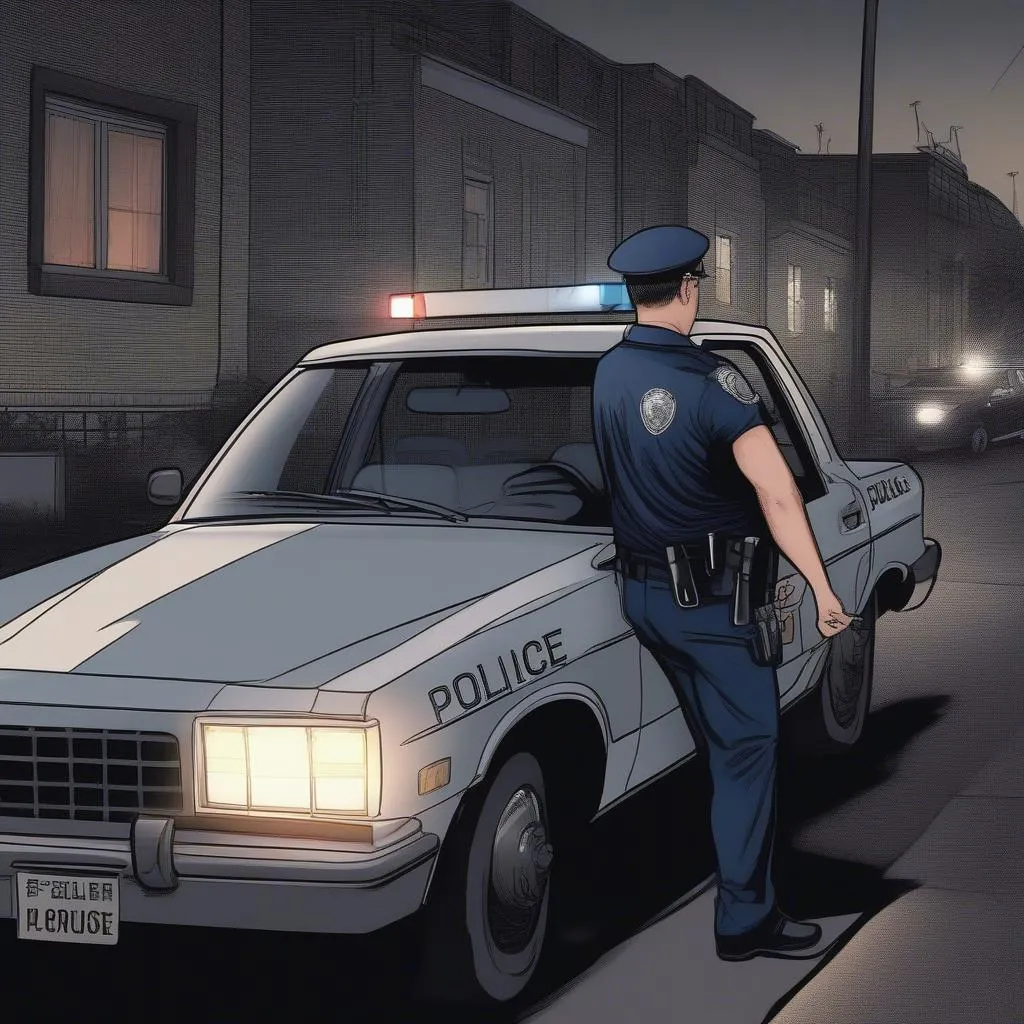Imagine this: You’re driving down the road when you see flashing lights in your rearview mirror. Your heart skips a beat as you pull over, wondering what you’ve done wrong. The officer approaches your car and asks to search it. What should you do?
This situation might sound like something out of a movie, but it happens more often than you think. Knowing your rights is crucial, especially when interacting with law enforcement. Today, we’ll delve into the complexities of police searches and your legal standing in the face of a search request.
The Importance of Understanding Your Rights
Understanding your rights during a police encounter is essential for several reasons. Firstly, it protects you from unwarranted intrusions into your personal space and property. Your car, for instance, is an extension of your home, and the Fourth Amendment of the U.S. Constitution protects you from unreasonable searches and seizures.
Secondly, knowing your rights empowers you to assert yourself in a potentially stressful situation. It allows you to act with confidence, even if you feel intimidated, and to ensure your rights are respected.
Lastly, understanding your rights can potentially help you avoid legal trouble. Making the right decisions, even in a tense situation, can be the difference between a smooth encounter and a legal battle.
Can a Police Officer Search Your Car Without a Warrant?
The simple answer is no, generally, a police officer cannot search your car without a warrant. This principle is deeply embedded in the U.S. Constitution’s Fourth Amendment, guaranteeing the right to privacy and freedom from unreasonable searches.
There are, however, some exceptions to this rule. Here are a few:
Exceptions to the Warrant Requirement:
- Probable Cause: If an officer has probable cause to believe that your car contains evidence of a crime, they can search it without a warrant. For instance, if they see illegal drugs in plain sight, or smell marijuana coming from your car.
- Consent: You have the right to refuse a search. If you consent, the officer can search your car. However, remember that you can revoke your consent at any time.
- Search Incident to a Lawful Arrest: If you’re arrested, an officer can search you and the area within your immediate control, including your car.
- Exigent Circumstances: This exception applies when there’s an immediate danger, such as a suspect fleeing or a potential weapon in the car.
- Plain View Doctrine: If an officer can see contraband or evidence of a crime in plain view from a legal vantage point, they can seize it without a warrant.
What Should You Do If a Cop Asks to Search Your Car?
So, what happens when you find yourself in this scenario? Here’s a guide:
- Stay Calm: Remember, your rights are protected. Remain calm, polite, and respectful, but don’t let your rights be violated.
- Ask Why: If an officer asks to search your car, ask why. What is the reason for the request? If the reason is not clear, or you don’t understand, you can politely ask them to explain it further.
- Do Not Consent: You are not required to give consent for a search. Politely but firmly decline the search, stating, “I understand you are asking to search my car, but I do not consent to that.”
- Document the Encounter: If possible, try to discreetly note details of the encounter, such as the time, date, location, the officer’s badge number, and any statements made.
- Seek Legal Advice: If you feel uncertain about your rights or believe your rights have been violated, seek legal advice from an attorney specializing in criminal law.
Remember, you have the right to remain silent and to have an attorney present during questioning.
FAQs – Common Questions About Car Searches
Q: What should I do if the officer says they have a warrant to search my car?
A: Request to see the warrant. Ensure it’s a valid search warrant issued by a judge, properly describing the location to be searched and the items to be seized.
Q: Can a dog sniff my car without a warrant?
A: Yes, under certain circumstances. This is known as the “sniff test” exception. If the dog is trained to detect illegal substances, and it indicates the presence of something illegal, it can be considered probable cause for a search.
Q: What if I’m carrying a legal firearm in my car?
A: Inform the officer that you’re carrying a firearm and follow their instructions. Depending on your state’s laws and the situation, the officer may have you remove it and place it in a safe location.
Q: Can the officer search my cell phone if they find it in my car?
A: Generally, no. Your phone is considered a protected area, and officers need a warrant to search it. However, if they have probable cause to believe your phone contains evidence of a crime, they may be able to obtain a warrant.
More Car-Related Information You May Find Helpful:
- Car Maintenance: https://techcarusa.com/best-obd-ii-scanner-2018/
- Car Accident Law: https://techcarusa.com/car-accident-lawyer-36043-hope-hull-al/
 Police Car Search
Police Car Search
Need Help with Diagnostics? Contact Us!
Understanding your rights in a police encounter can feel overwhelming. If you have any questions about car diagnostics, legal rights, or need help with troubleshooting issues with your vehicle, our team of experienced automotive technicians is here to assist you.
Contact us via Whatsapp: +84767531508. We’re available 24/7 to provide expert guidance and support.
Don’t hesitate to reach out. Let us help you keep your vehicle running smoothly and protect your rights!
Remember, knowledge is power. Be informed, stay safe, and always be aware of your rights.
 Car Maintenance Tools
Car Maintenance Tools
